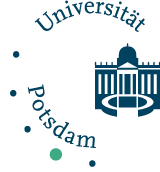The Team Bids Farewell
After three and a half eventful years, our team is bidding farewell to the University of Potsdam at the end of February. Prof. Dr. Julia Brennecke has accepted a position at the University of Oldenburg and, together with David Bender, Hanna Hodel, and Anita Knappe, will continue her research on innovation networks. We thank all colleagues, cooperation partners, and especially our students for the exciting time in Potsdam.
